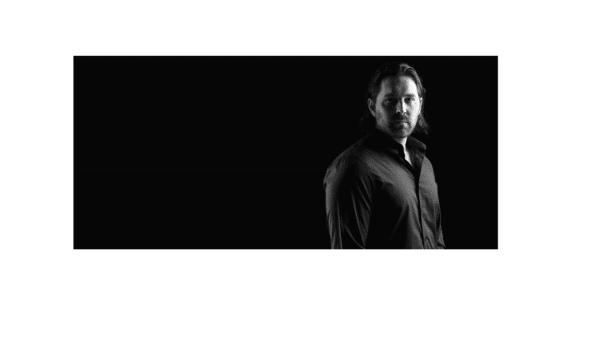Reclaiming His Life

By Robert Lerose
Published March 14, 2022 By The Rutgers University Alumni Association
In May 2011, Anthony Giarratano pulled into a Walgreens pharmacy in Hillsborough, New Jersey, at around 6 p.m. He scribbled a list of every pill he thought would get him high, walked into the store, and waited patiently in line before handing the note to the pharmacist. When the pharmacist looked up, puzzled, Giarratano SAS’10 showed him a knife he had taken from his parents’ kitchen that morning, then quickly returned it to his pocket. “I didn’t point it at him or verbally threaten him with it,” Giarratano says, “but I knew I had crossed over a line.”
He grabbed the bottles the pharmacist handed him and left the store just as a police car rolled up. “I walked over to the officer and told him what just happened, that I don’t know what I’m doing, that I was lost, and I needed help,” he says.
Eventually, Giarratano, now 34, was sentenced to five years in prison, an odyssey he recounts in Aftermath (Aftermath Press, 2021), a gritty memoir of his life behind bars and his odds-defying outcome.
Giarratano’s odyssey started when he was diagnosed, at 18 years old, with acute promyelocytic leukemia. He spent more than 40 days in the hospital undergoing chemotherapy and nearly died from heart failure. He was prescribed fentanyl patches and methadone upon his discharge but received no guidance about possible addiction. He got off them on his own but wonders to this day whether the cancer treatment regimen led to his later addiction or if he could have done something different to avoid it.
“Not every kid who has cancer turns into a pharmacy-robbing drug addict,” Giarratano says. “How were those kids able to process it compared to how I processed it? Did they have different support? It’s not like I didn’t. I had tremendous support, but I don’t know at what point I could have prevented this.”
A wrong turn
In 2007, when Giarratano entered Rutgers as a psychology major, he felt out of touch with his friends, who were now a year ahead of him. He swung precariously between extremes of trying to be “perfect,” dabbling in pills, and being unfaithful to his girlfriend.
By the time Giarratano graduated and moved back in with his parents, he was addicted to pills like oxycodone and Xanax. He began stealing from his family to support his habit until his arrest for the Walgreens pharmacy robbery a year later.
“My mom and dad knew nothing of addiction, but they never gave up on me,” he says. “They were mad at times, but they were always there.”
His parents put a lien on their house to bail him out of jail and his grandparents paid for his rehab—acts of faith that Giarratano was grateful for and worked hard to be worthy of. He completed his rehab successfully, stayed clean while out on bail, held down a responsible job, and never committed another offense. His lawyer told him that the longer he was out on bail and doing well, the better. He advised Giarratano to sign a plea deal in June 2013, without pursuing potentially better legal options first.
“I got my life back and my family back. I learned to appreciate all of it,” Giarratano says. “And then I was sent to prison for five years [in August 2013].”
The road back
Aftermath describes his journey through the New Jersey prison system, beginning with his incarceration at the Garden State Youth Correctional Facility in Yardville. At his father’s suggestion, he kept a journal. “I so badly wanted something to come of what I was doing. I knew nothing about writing, but I started writing pages and pages—what I was feeling, what I saw. It was an outlet.”
He recorded the prison’s chronic callousness and casual brutality—from an inmate who rubbed IcyHot into his eyes while he was sleeping to an infirmary nurse who carelessly switched his heart medications without apologizing.
Steering clear of the pervasive prison drug culture, strictly adhering to the rules, and exercising rigid self-control let him progress from the correctional facility to a halfway house to a work program before being released in November 2017.
While incarcerated, Giarratano applied for and was ultimately granted “a full and free” pardon from then-Governor Chris Christie on January 12, 2018. The pardon was almost unprecedented, as Christie had given only one other to someone convicted of robbery.
For the last three years, Giarratano has been living and teaching English online in Southeast Asia, but that gig will likely end because of new Chinese government policies. “I’m also ready for something new, but not sure what that is,” he says, now nearly 11 years clean.
“Where I’ve been and where I am now is mind-boggling to me. I feel equipped to talk about the stuff that really affects people on a day-to-day basis—not all the rainbows and butterflies, but the heavier-duty life things. [My book] was really born of the sadness I had for my mom and dad—what they went through and sticking by my side. I hope it can provide hope for other moms and dads who feel like their kid was lost. It’s possible to be that kid and come out the other side because I was once there.”
